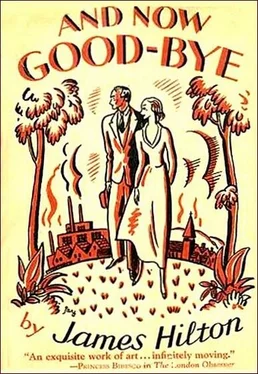Then, with a jerk of inward perception, he passed from bewilderment to personal misgiving. Here was a girl, a daughter of one of his own chapel officials, proposing to do something monstrously unwise (quite apart from any question of morals); and he, the Reverend Howat Freemantle, was stirred by the matter to no more profound emotion than a sort of peeved fastidiousness. It was rather as if Ringwood, meeting a man bleeding to death by the roadside, should pass by for fear of getting Ms clothes soiled. After all, what was the good of his pastorate if he couldn’t make himself of use in such an emergency? He thought, with a quick return of his old self-upbraiding mood: Oh yes, you’re all right for giving addresses about Mozart and drinking tea with the ladies, but when it comes to tackling the practical sort of work that justifies the rather eccentric costume you wear and the prefix to your name, then you fail utterly and hopelessly. Really, really, you aren’t going to let a girl of twenty-two run off with a married man of fifty…or are you? (He answered himself: But you can’t stop her; she’s over age; she has the legal right to do what she wants and she knows it.) But, man, you can stop her, or you’ve got to try, anyhow. She’s given you a loophole; she’s sent you an address; there’s nothing, indeed, to prevent you from actually meeting her, if she’ll see you, when you go to London on Friday; then you can put your persuasive eloquence to a more vital test than the luring of threepenny bits into the collecting plate. However much you dislike the job, you’ve got to see that girl, you’ve got to talk her into her right senses, and you’ve got to make her return home. (But then, Garland says he won’t have her back at any price.) Nonsense; he will, or, if he says he won’t, then you’ve got another job—to persuade him . And in any case, whether he relents or not, your duty with the girl is plain…
Howat was thoroughly wretched by the time he returned to the Manse for tea. He had made up his mind that he would not and could not shirk his duty, but he felt no sort of enthusiasm about it, still less any confidence of being successful. It was all so extraordinary, so unpleasantly removed from his usual ‘beat’. During the past dozen years there had been many occasions on which he had had to exert his personal influence in some cause or other, but they had all been interventions of a more straightforward kind—pleading with an employer not to prosecute in a case of theft, arranging terms of peace between landlord and tenant, telling youths they oughtn’t to spend so much money in the public-houses, and so on. But this affair was clearly different in kind as well as in degree.
That evening there took place in the chapel the customary week-night service, and for perhaps the first time in his life Howat gave an address which he knew, while he was speaking, did not represent the best that was in him. The subject was ‘prayer’, and he heard, with dismay, his own voice, perfectly fluent and modulated, dispensing a representative selection of all the more obvious platitudes that had ever been coined on the topic.
He wished, while he was leading the singing of the last hymn, that he could remember more about the girl. He couldn’t even picture her in his mind, but then, he had never had a good memory for faces. All he recollected (rather oddly, in the circumstances) was that she had seemed to him quite normal and pleasant.
He felt so sure that he would not easily sleep that night that after making cocoa in the kitchen he took the cup to his study, and settled himself in his favourite armchair. But in such a solitude he was more than ever at the mercy of upbraiding conscience; he knew that he must, inevitably, see the girl, and he could no longer even shirk the necessary details of fixing an appointment. In the end (about midnight) he took pen and paper and wrote the following:
“Dear Miss Garland,— I received your letter, but before attempting to do what you ask, I would rather like to talk things over with you. It happens that I shall be in London on Friday of this week—could you meet me, say, at Charing Cross post office at 5.30 p.m.? There will not be time for you to write in answer, so I will hope to see you there if you can manage it.”
As he read this over he had the ignoble thought: Maybe she won’t come; she’ll guess I mean to argue with her and try to get her back…And that, after another troubled bout with his conscience, made him compose a much shorter note—merely:
“Dear Miss Garland,—I shall be in London on Friday—can you meet me at Charing Cross post office at 5.30 p.m.? There will not be time for you to reply to me here, but I will hope to see you if you can possibly manage it.”
It was almost one o’clock when he went out to post the letter. Caution advised him not to drop it in the pillar-box at the corner of School Lane; the Browdley post office was notorious as a centre of gossip and scandal- mongering. Instead he walked to a small wall-box about a mile away in the country and in a different postal area. A tired wakefulness was on him, and his throat was giving pain again; well, never mind, in another couple of days he would know the truth about that. The walk calmed him a little; the night was cold and clear, and even the badly-proportioned fa�ade of the chapel loomed with a certain dignity into the blue-black sky. The theme of the song he had been composing that morning recurred, but somehow failed to satisfy—poor stuff now, remembered against a background of pain and starlight that seemed to throb in rhythmic unison together.
Back at the Manse he thought of the earlier draft of his letter, thrown into the wastepaper-basket; safer, perhaps, to burn it. He did so, with difficulty in the dying embers of the fire, and afterwards, on sudden impulse, opened the drawer of his desk which contained the Raphael picture. He stared at it for a moment, almost as if he hoped it would tell him something; then, after a faint sigh, nothing was left but to put it away, turn out the light, and go to bed.
He had slept poorly; his throat was bad again; and the bacon and eggs, due to renewed miscalculation or negligence on the part of Ellen, were almost uneatable. He did not grumble, partly because Mary grumbled so much, but chiefly because he had no appetite. “I suppose you’ll be wanting your breakfast early tomorrow, Howat?” Aunt Viney said, but he replied: “Oh no, I’ll make myself a cup of tea before I go—I can get a meal on the train. There’s no need for you or Ellen to get up any earlier than usual.” He disliked giving trouble, not wholly from unselfish motives—he disliked the trouble that giving trouble caused.
After breakfast he had hoped for an hour or so of quietness; as it chanced, however, several callers took up his time; a woman wanted a ‘character’ written out for her small boy, a Sunday school pupil; and an unemployed young fellow, a complete stranger, called to know if Howat could give him some job of painting or cleaning windows in the chapel. Howat couldn’t, but the man’s long story of tramping the country in search of work depressed him in a way which the narrator joyfully perceived; he amplified his tale till Howat was finally reduced to a condition of nodding melancholy. In the end a ten-shilling note, which Howat could ill afford, changed hands, and the man was sent to the kitchen to see if he could be given a meal. He got one, but Aunt Viney meanwhile put him through various tests of her own devising, with the result that, so she claimed afterwards to Mrs. Freemantle, she felt sure he was a fraud—“though, of course, you can never prove these things, and Howat had given him something, I’ll dare be bound, as he always does unless I catch them first before they get inside the house.”
Читать дальше











